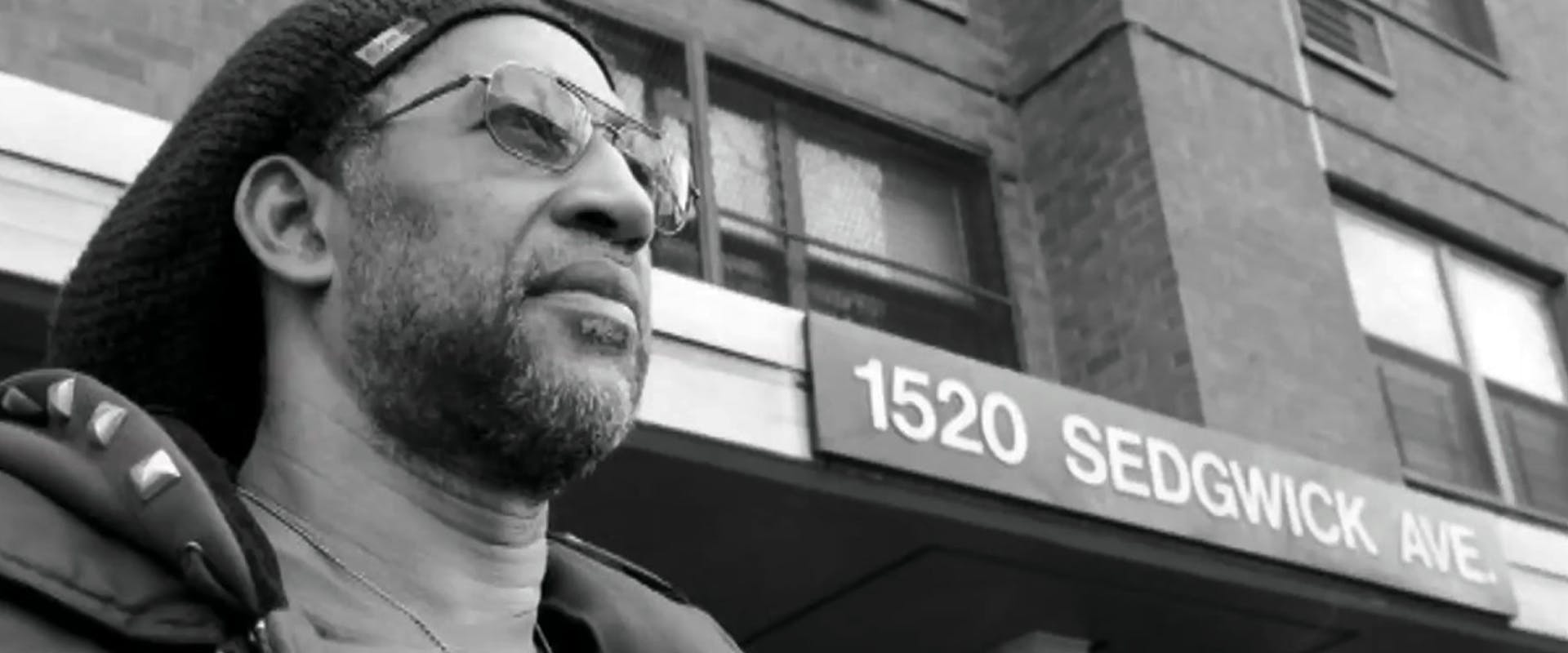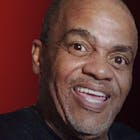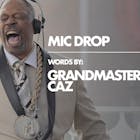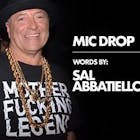
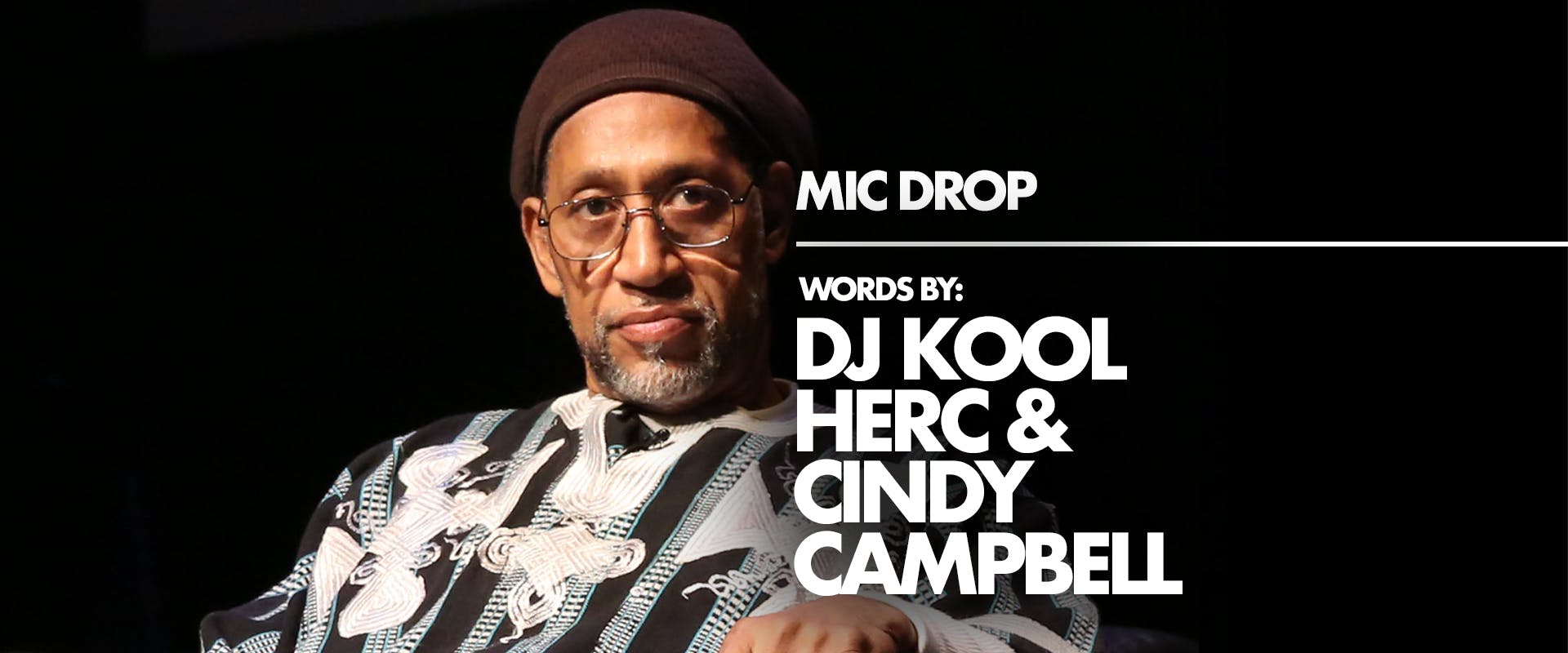
MIC DROP is a recurring series featuring the thoughts and opinions of some of the biggest voices in classic Hip-Hop. Raw, uncut — and in their own words — these are the gems you've always wanted.
Cindy Campbell: In Jamaica, we went to school and there was a convent on the grounds. We enjoyed spending time with Sister Agatha. One of our grandmothers had a beehive and she would raise honey. On the way coming home from school, we'd stop by and she'd give us the honeycomb to get the raw honey.
Kool Herc: The other place to remember is called Sabina Park. It's like Yankee Stadium — but for cricket. There were pick-up games around the neighborhood.
CC: It was great growing up on the island. On Sundays, we’d have dinner on the beach.
KH: In Jamaica, my father let me know about Nat King Cole, Ella Fitzgerald, Byron Lee and the Dragonaires, and Bing Crosby. He could sing the entire White Christmas album word for word.
CC: He was very musically inclined. There was always music playing in the house. If any new sound equipment was out, my father had it. He was an innovator in that sense. We were the first ones on the block to have a television.
KH: Sir Coxsone was my father's friend. I remember watching the preparation for the dancehall parties. You could smell the curry goat. You could tell where the dance halls were because they were surrounded in zinc.
CC: You know — sheet metal. They would put that around where the party was going to be so people couldn't see inside without paying money to come in.
KH: You hear the zinc going “zzg zzg zzg zzg.”
CC: It was the bass.
KH: Got to have the bass. A cat doesn’t even get in there.
CC: In Jamaica, there are no apartments. People live in houses. No matter what, you live in a house. So coming here, we’re now living in a walk-up to get to where we live. The doors have a little peephole. So if somebody knocked on the door, one of us had to look through a peephole. And there were times when we heard people knock on the door and they would cover the peephole. My father didn't like that. He said, "I can't live like this in a box with a door and a peephole.”
KH: Don't forget flushing the toilet. We never knew about that. Talk about a rude awakening.
CC: If someone lived on the top floor and flushed the toilet, everyone below would hear the water run down. We were constantly hearing things like that. It was hard to have people living above us. I’d take a pole or a stick and hit the ceiling. When I looked out the window, I’d see garbage. In Jamaica, we had somebody who would come to our house to do the laundry by hand. In the Bronx, we had to do it ourselves. I’d have to fight to get a washing machine or dryer. Sometimes, we’d forget the clothes and they would steal it. We were like, "Who would steal somebody's clothes?!”
KH: I was playing records in the house like Three Dog Night. There was a Jewish lady next door who told me, "I love the music you play. Oh my god, you play some nice music.”
CC: Cousin Brucie.
DROP YOUR EMAIL
TO STAY IN THE KNOW
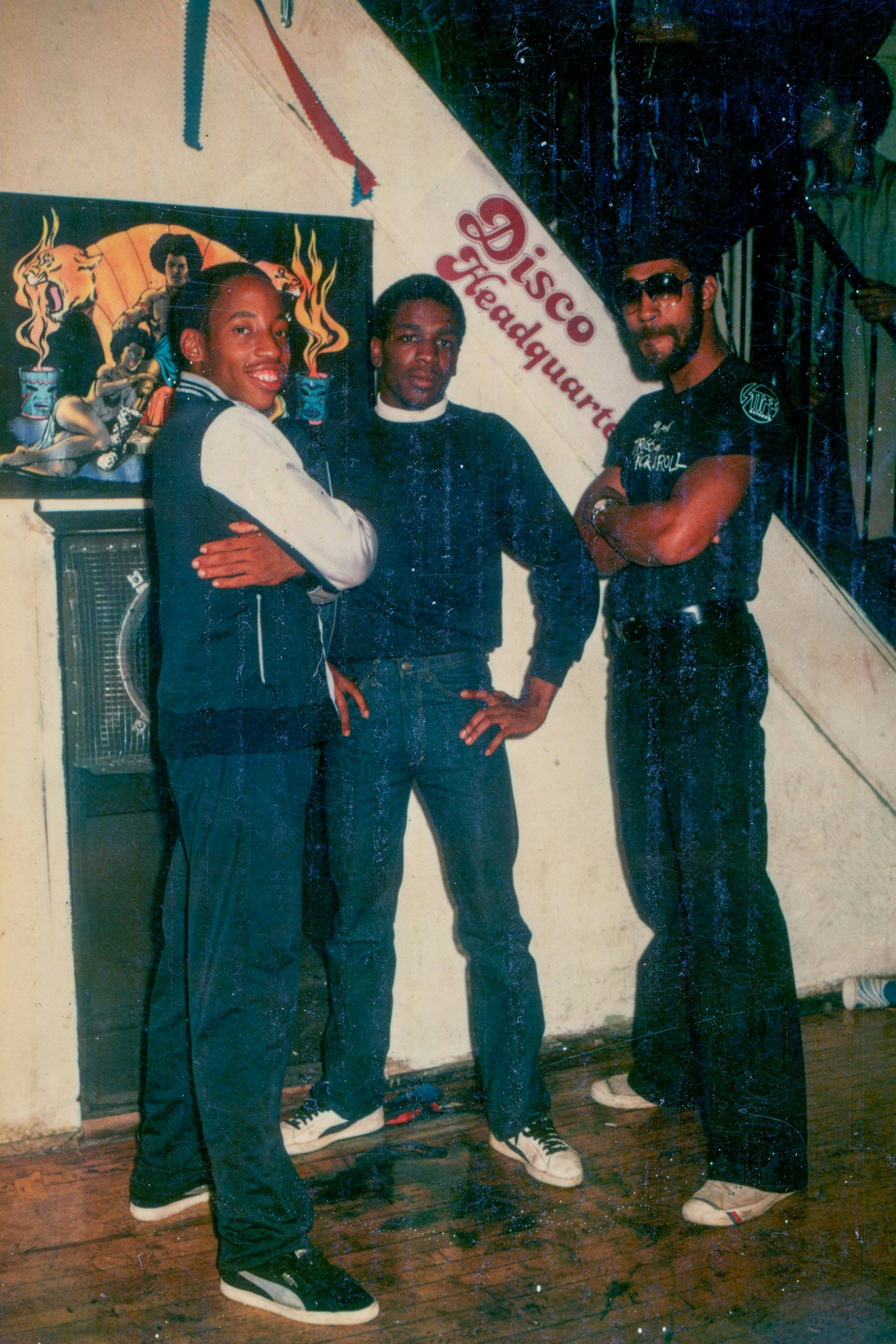
KH: It was Cousin Brucie and Wolfman Jack. “Judy In Disguise” and all that stuff. I would say, music wasn't about the Black thing — it's a we thing.
CC: Yeah. You like the music, you play it. When we moved in the neighborhood, it wasn't changing yet. You didn't have the white flight. There were a lot of Italians and Jewish people in the building. Thelma was a tenant in the building. She was the last white person that said, "I'm not leaving." And then finally her children said, "Mom, you can't live here anymore because we're not going to come visit you anymore."
KH: The graffiti started with a group called the EX-VANDALS; SUPER KOOL 223 and Lonnie (PHASE 2). That’s my man. We hid down in the train yards with markers. I couldn't go too far away because my father was a very disciplining person. But we did hit the No. 4 train and the Third Avenue El in the Bronx before it got knocked down. [I called PHASE 2} “Mysterio.” He's a cool dude. And after a while, he designed some flyers for me. Then the flyers got abstract. They were crazy. I told him, “I’ve got to see the information on my flyer.”
CC: I had my tag name PEP 1. The reason why I was PEP 1 was because somebody might take your name. So PEP 1 meant you're the first one. I wrote it, but I wasn't crazy on the trains with paint and things like that. I used to write it in the neighborhood — or down the street we would do it with the spray paint.
KH: I’d ride the train next to people who pointed at the graffiti and asked , “Who's the guy doing that?" And then I’d be laughing thinking, “I'm right beside you.”
CC: The whole thing about the Sedgwick Avenue party is, you want to go back to school with something nice, different, and fresh — and you're the only one that had it. Alexander’s was the department store. I put my money together. Then I thought, “How am I going to increase my money to turn it over, to make some more money? That's when I had the concept and the idea to do the Back to School Party. It wasn't a birthday party, it was back to school. You’ had to give it a good reason and a theme. I thought, “How am I going to promote this party? How am I going to make this happen?” So we had the recreation room and it was $25 dollars to rent the room.
KH: That's what it was there for.
CC: Or anniversary and christenings. That's what it's there for. And you had two bathrooms in there.
KH: Can’t beat that.
CC: So I'm like, “Oh, two bathrooms? One could be for the boys, one could be for the girls.”
KH: And if got a little hot. you could go outside a bit because it's closed off. You got to hang out in the hallway and down the block.
CC: If you wanted to leave, you had to jump up a wall and take the steps to get there. I'm thinking, “Once people came to the party, if they needed to go buy something, they're going to go all the way to the store, and they're not coming back. How do I keep them there?” So we had to sell soda, and we had to sell beer. I couldn’t go to the supermarket and buy it, so we had to get it wholesale. So I'm thinking of all of that. Now, I have to put the whole motion in play. I went to the management and they said it’s $25. But he said, "You're too young to sign the papers. You got to get your parents to do it." I was a daddy's girl, so that was no problem. He took the form to my father and he was pleased to know that I wanted to do something like that. It was my money, so he signed it. We got a date. I spoke to Herc. I said, "Herc, you have all this equipment in your room. You're going to be the DJ." He was like, "Okay." So I now I didn’t have to pay my DJ and I'm cutting my costs. He told his friends Coke, Timmy Tim, and Clark Kent what was going to be happening.
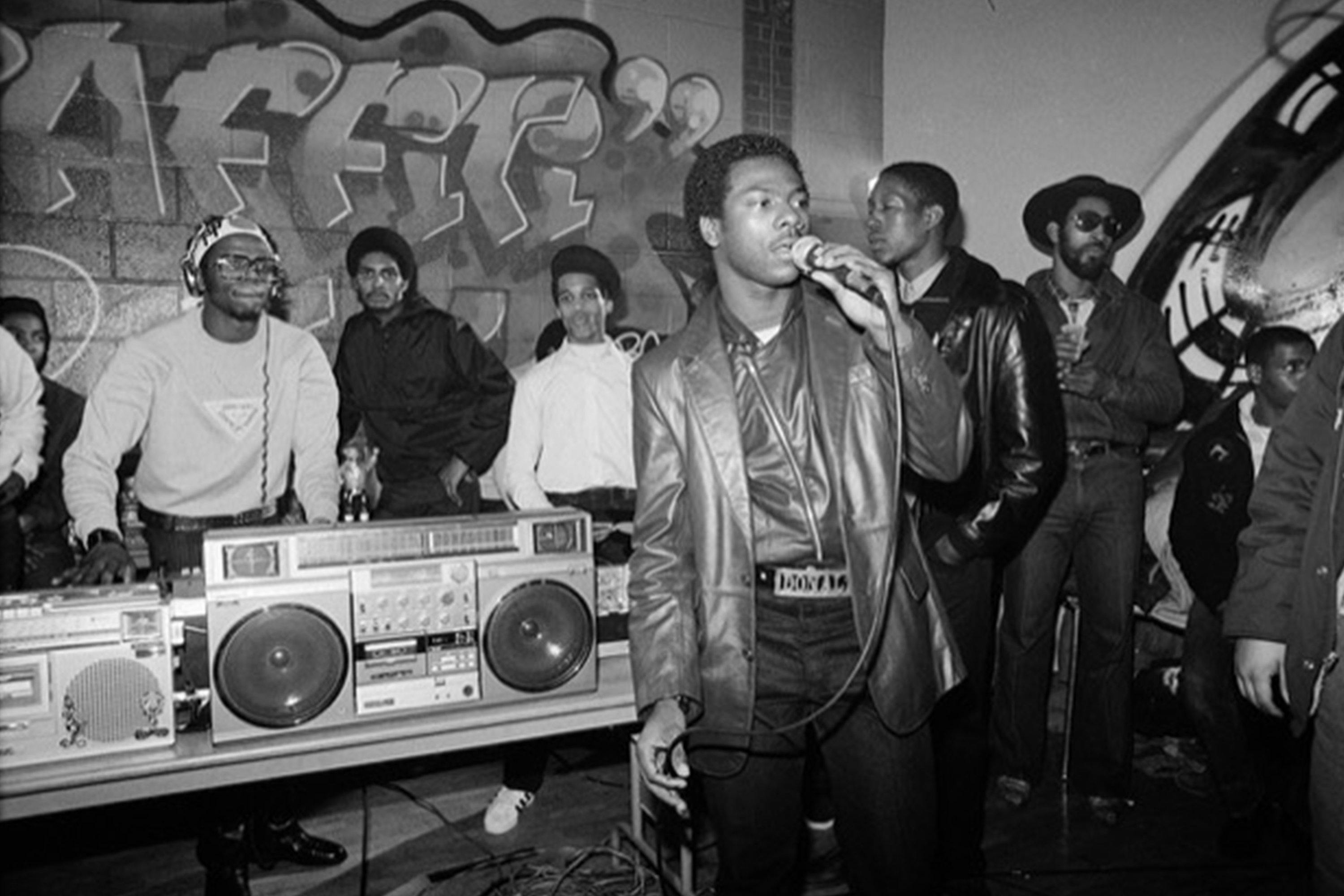

KH: The people wanted this.
CC: That is the thing as a creator and an innovator. You have the formula, you know what to put into it to make it work. I couldn't go and buy beer. My father took us to do it. And we were kids now, so we wanted to get the strongest malt liquor at the time — which was Colt 45 and Olde English 800.
KH: And don't forget Brass Monkey.
CC: Now we had to get the invitations out. We did that on index cards that I got from school. We'd hand write the index cards before we had the flyers.
KH: We promoted whatever record I was feeling at the time. That was the theme of the index card.
CC: Then word got around. But you have to remember at the time, New York City was in a state of bankruptcy. New York City was burning. There was nothing for kids to do.
KH: I saw the white flight, I saw the burning. I saw it. Right there.
CC: Our parents were there in the lobby and outside. We were kids, and they were the security. They told the other parents "Come on over, the kids are giving their little party." And some of the parents in the building also got together. It was the beginning of that, “Hip-Hop is a family thing.” When people would say that, “Hip-Hop just started,” it didn't. It was a whole plan and a concept that went on behind it. Hip-Hop came from a very humble beginning. It wasn't started from blood money, illegal money, or drug money. It wasn't started from any of that. It was rooted on a very strong foundation. Therefore, I believe it cannot be dismantled because it was built firmly. You can only build and build and grow on it. And as time changed, it started evolving. Things kept happening and happening. And we're always blessed when somebody does something and keeps it alive.
KH: When we realized, "How can we reach the kids?" It came along through the music. Martin Luther King said, "Little black boy, little white boy going to school together." That was it.
CC: Hip-Hop did that.
